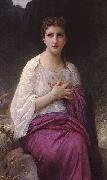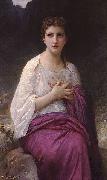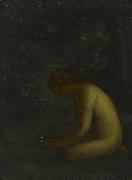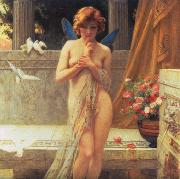Wholesale Oil Painting No Minimum |
|||||||||||
|
|
|||||||||||

|
|||||||||||
|
|
|
||||||||
Bertel Thorvaldsen1770-1844 Copenhagen, He was a Danish/Icelandic sculptor. Thorvaldsen was born in Copenhagen in 1770 (according to some accounts, in 1768), the son of an Icelander who had settled in Denmark and there carried on the trade of a wood-carver. This account is disputed by some Icelanders, who claim Thorvaldsen was born in Iceland. Young Thorvaldsen attended Copenhagen's Royal Danish Academy of Art (Det Kongelige Danske Kunstakademi), winning all the prizes including the large Gold Medal. As a consequence, he was granted a Royal stipend, enabling him to complete his studies in Rome, where he arrived on 8 March 1797. Since the date of his birth had never been recorded, he celebrated this day as his "Roman birthday" for the rest of his life. Thorvaldsen's first success was the model for a statue of Jason, which was highly praised by Antonio Canova, the most popular sculptor in the city. In 1803 he received the commission to execute it in marble from Thomas Hope, a wealthy English art-patron. From that time Thorvaldsen's success was assured, and he did not leave Italy for sixteen years. In 1819 he visited his native Denmark. Here he was commissioned to make the colossal series of statues of Christ and the twelve Apostles for the rebuilding of Vor Frue Kirke (from 1922 known as the Copenhagen Cathedral) between 1817 and 1829, after its having been destroyed in the British bombardment of Copenhagen in 1807. |
||||||||
|
|
||||||||
Psyche
Psyche Painting ID:: 38549 |
mk138
1806
Marble
129x38x39cm
Transferred to the Nationalgalerie in 1949
mk138 1806 Marble 129x38x39cm Transferred to the Nationalgalerie in 1949 |
|||||||
|
|
||||||||
Adolphe William BouguereauBouguereau made more than seven hundred finished works. French painter. From 1838 to 1841 he took drawing lessons from Louis Sage, a pupil of Ingres, while attending the coll?ge at Pons. In 1841 the family moved to Bordeaux where in 1842 his father allowed him to attend the Ecole Municipale de Dessin et de Peinture part-time, under Jean-Paul Alaux. In 1844 he won the first prize for figure painting, which confirmed his desire to become a painter. As there were insufficient family funds to send him straight to Paris he painted portraits of the local gentry from 1845 to 1846 to earn money. In 1846 he enrolled at the Ecole des Beaux-Arts, Paris, in the studio of Francois-Edouard Picot. This was the beginning of the standard academic training of which he became so ardent a defender later in life. Such early works as Equality reveal the technical proficiency he had attained even while still training. In 1850 he was awarded one of the two Premier Grand Prix de Rome for Zenobia Discovered by Shepherds on the Bank of the River Araxes (1850; Paris, Ecole N. Sup. B.-A.). In December 1850 he left for Rome where he remained at the Villa Medici until 1854, working under Victor Schnetz and Jean Alaux (1786-1864). During this period he made an extensive study of Giotto's work at Assisi and Padua and was also impressed by the works of other Renaissance masters and by Classical art. On his return to France he exhibited the Triumph of the Martyr (1853; Luneville, Mus. Luneville; ) at the Salon of 1854. It depicted St Cecilia's body being carried to the catacombs, and its high finish, restrained colour and classical poses were to be constant features of his painting thereafter. All his works were executed in several stages involving an initial oil sketch followed by numerous pencil drawings taken from life. Though he generally restricted himself to classical, religious and genre subjects, he was commissioned by the state to paint Napoleon III Visiting the Flood Victims of Tarascon in 1856 |
||||||||
|
|
||||||||
Psyche
Psyche Painting ID:: 68782 |
Description Bouguereau-Psyche.jpg
Psyche
Description Bouguereau-Psyche.jpg Psyche |
|||||||
|
|
||||||||
Adolphe William BouguereauBouguereau made more than seven hundred finished works. French painter. From 1838 to 1841 he took drawing lessons from Louis Sage, a pupil of Ingres, while attending the coll?ge at Pons. In 1841 the family moved to Bordeaux where in 1842 his father allowed him to attend the Ecole Municipale de Dessin et de Peinture part-time, under Jean-Paul Alaux. In 1844 he won the first prize for figure painting, which confirmed his desire to become a painter. As there were insufficient family funds to send him straight to Paris he painted portraits of the local gentry from 1845 to 1846 to earn money. In 1846 he enrolled at the Ecole des Beaux-Arts, Paris, in the studio of Francois-Edouard Picot. This was the beginning of the standard academic training of which he became so ardent a defender later in life. Such early works as Equality reveal the technical proficiency he had attained even while still training. In 1850 he was awarded one of the two Premier Grand Prix de Rome for Zenobia Discovered by Shepherds on the Bank of the River Araxes (1850; Paris, Ecole N. Sup. B.-A.). In December 1850 he left for Rome where he remained at the Villa Medici until 1854, working under Victor Schnetz and Jean Alaux (1786-1864). During this period he made an extensive study of Giotto's work at Assisi and Padua and was also impressed by the works of other Renaissance masters and by Classical art. On his return to France he exhibited the Triumph of the Martyr (1853; Luneville, Mus. Luneville; ) at the Salon of 1854. It depicted St Cecilia's body being carried to the catacombs, and its high finish, restrained colour and classical poses were to be constant features of his painting thereafter. All his works were executed in several stages involving an initial oil sketch followed by numerous pencil drawings taken from life. Though he generally restricted himself to classical, religious and genre subjects, he was commissioned by the state to paint Napoleon III Visiting the Flood Victims of Tarascon in 1856 |
||||||||
|
|
||||||||
Psyche
Psyche Painting ID:: 70886 |
Description Bouguereau-Psyche.jpg
Psyche
Description Bouguereau-Psyche.jpg Psyche |
|||||||
|
|
||||||||
Arthur Bowen Davies1862-1928 Arthur Bowen Davies Gallery Arthur Bowen Davies (September 26, 1863 ?C October 24, 1928) was an avant-garde American artist. He was born in Utica, New York and studied at the Chicago Academy of Design from 1879 to 1882. He briefly attended the Art Institute of Chicago and then moved to New York City where he studied at the Art Students League. Davies was a principal organizer of the 1913 Armory Show and was a member of The Eight, a group of painters including five associated with the Ashcan school: William Glackens (1870-1938), Robert Henri (1865-1929), George Luks (1867-1933), Everett Shinn (1876-1953) and John French Sloan (1871-1951), along with Arthur B. Davies (1862-1928), Ernest Lawson (1873-1939) and Maurice Prendergast (1859-1924). Davies is best known for his ethereal figure paintings. He worked as a billboard painter, engineering draftsman, and magazine illustrator. |
||||||||
|
|
||||||||
Psyche
Psyche Painting ID:: 72846 |
Date between 1906(1906) and 1908(1908)
Medium Oil on canvas
Dimensions 38.5 X 28.8 cm (15.16 X 11.34 in)
cyf Date between 1906(1906) and 1908(1908) Medium Oil on canvas Dimensions 38.5 X 28.8 cm (15.16 X 11.34 in) cyf |
|||||||
|
|
||||||||
Guillaume SeignacHe was born in Rennes, France, in 1870, and died in 1924. He started training at the Academie Julian in Paris, where he spent 1889 through 1895. He had a lot of teachers there, including Gabriel Ferrier, and Tony Robert-Fluery. Tony Robert Fluery was a noted history and genre artist. Gabriel Farrel, on the other hand, had been an awarded Prix de Rome. He had another one named William Bouguereau. |
||||||||
|
|
||||||||
Psyche
Psyche Painting ID:: 98494 |
circa 1900 circa 1900 |
|||||||
|
|
||||||||
|
Guillaume Seignac He was born in Rennes, France, in 1870, and died in 1924. He started training at the Academie Julian in Paris, where he spent 1889 through 1895. He had a lot of teachers there, including Gabriel Ferrier, and Tony Robert-Fluery. Tony Robert Fluery was a noted history and genre artist. Gabriel Farrel, on the other hand, had been an awarded Prix de Rome. He had another one named William Bouguereau. Psyche circa 1900 |
||||||||
|
|
||||||||
|
Prev Next
|
||||||||
|
|
||||||||
|
Related Paintings to Guillaume Seignac :. |
||||||||
|
|
||||||||
|
CONTACT US |





